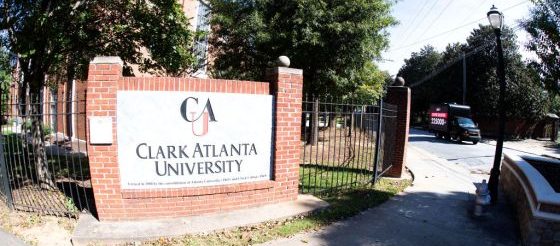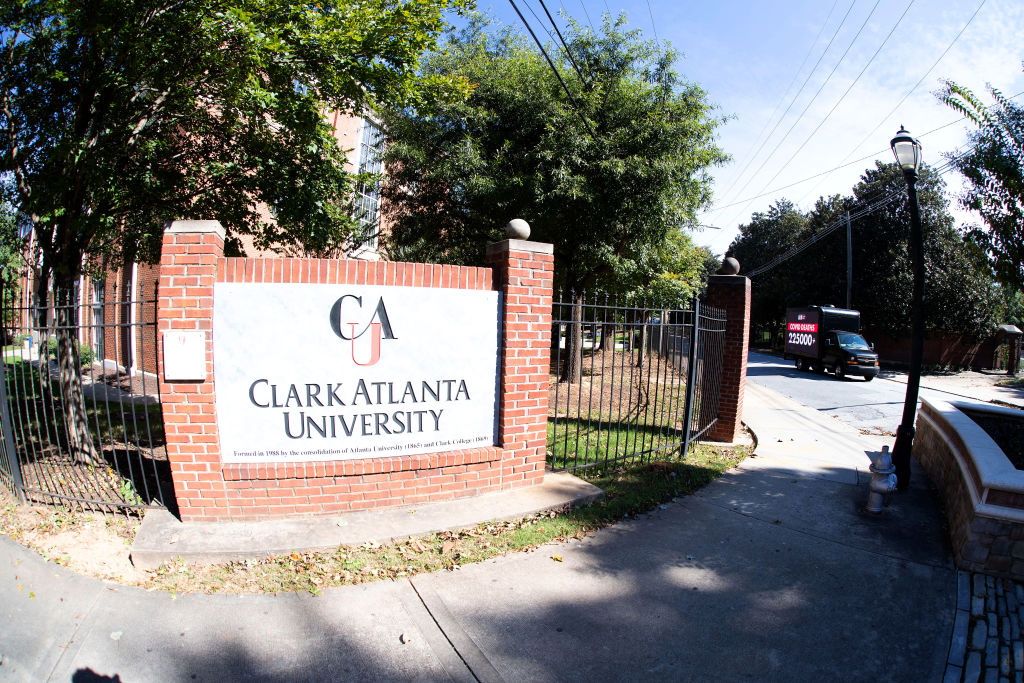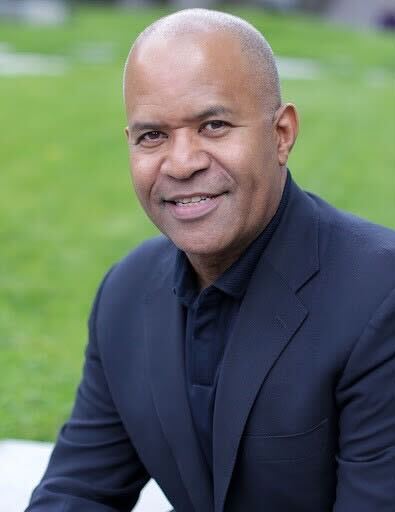HBCU Innovation: How The Propel Center Could Become A Major Catalyst For Black College Students


A view of the billboard truck at Clark Atlanta University for #ALLINFORVOTING Get Out The Vote Billboard Campaign on October 31, 2020, in Atlanta, Georgia. | Source: Marcus Ingram / Getty
Innovation has always been a natural gift for young Black minds.
Opportunity on the other hand has always been more of a struggle to obtain.
This is where the Propel Center, a new learning center created for HBCU students, will help fill the gap. The 50,000 square foot center based in the Atlanta University Center Consortium will assist Black students attending HBCUs by allowing them to gain key skills through innovation and professional teaching both virtually and in person.
The Center was funded largely by $25 million investments from Apple and Southern Company and will look to expand its reach to other HBCUs in the future. The organization focuses on programs that give HBCU students the resources and inspiration to accomplish major feats in their respective industries.
NewsOne spoke exclusively with new Propel Center CEO, Gene Wade, who has been a leader in education and social entrepreneurship for 25 years. He believes the Propel Center can play a significant role in providing students at HBCUs a chance to bridge the opportunity gap.
“Talent is everywhere, every community has talented people. We are all talented. Opportunity in this country is all over the place but what’s not there is preparation. Our kids aren’t being prepared to take advantage of the opportunities that are being created as talented as they are,” said Wade, who is a graduate of Morehouse College. “Part of this is about hard skills, it’s teaching kids the skills to be able to succeed and some of it is aspirational. If you can do it, I can do it.”
Inspiring the students to achieve is an integral part of the Propel Center’s purpose. Often, a significant barrier for young Black talent is the belief that they can reach the heights they’ve never seen before. The Propel Center will assist in changing that for many HBCU students.
“I think it helps when you see people who like you doing things that you didn’t think was necessarily first possible when you saw them,” Wade explained. “I can see myself leading innovation in a major corporation or building a startup that does something significant because I’m seeing people like me do it every single day. That’s really critical and that’s a big part of the magic of HBCUs.”

Gene Wade, Propel Center CEO. | Source: PropelCenter.org
For Wade, the strategy for the Propel Center’s success is simple. They want to focus on the skills that major employers are looking for when it comes to young talent and provide that to these students.
“What we are asking companies is ‘what are your first, second, and third-year employees doing?’ The most successful ones in the most coveted jobs, doing the most advanced work because I want my sophomores, juniors, and seniors to do that,” Wade stated. “Let’s have a training program where…my sophomores, juniors, and seniors get a chance to do what your first, second, and third-year employees do. That will close the gap down, then when they get there and interview they are not wondering ‘how does it work? Or where do I fit?’ They kind of have a mental model. “
The financial commitment from Apple and Southern Company and the vision for this project from leaders within these companies cannot go overlooked. Their involvement adds to a long list of companies looking to improve the circumstances of HBCUs and their students in the last two years.
Wade says that the base level of investment has lifted for HBCUs and their students since the murder of George Floyd. He believes that if HBCUs continue to focus on implementing innovative programs that prepare students for life in a knowledge-driven economy, then they will attract even more investments and create even more successful students.
“I don’t think colleges are job programs, colleges train leaders. Colleges and Universities train young leaders and participants in the economy of the future. I think the more HBCUs that move in that direction the more investments they are going to attract,” said Wade. “HBCU students have really high expectations that they are going to succeed and they are going to achieve at high levels in whatever field or endeavor they enter. They are young people who understand the challenges that are in our country and they aren’t shying away from who they are. They understand those challenges and they are leaning in to build solutions.”
Moving forward the Propel Center is looking to establish a footprint in the HBCU ecosystem. They will strive to be impactful at nearly every HBCU by instilling an online community, as well as in-person programs where students can gain experience with the latest technology and obtain knowledge from industry professionals.
The open campus could be the next major step in giving HBCU students the confidence and resources to change the world.
“It’s about inspiring people to believe bigger,” said Wade. “And then showing them how to do it.”
SEE ALSO:
Clark Atlanta University Joins Apple And Tennessee State University’s Tech Education Initiative
What’s The Truth About Biden’s Commitment To HBCU Funding?
[ione_media_gallery src=”https://newsone.com” id=”3903711″ overlay=”true”]
